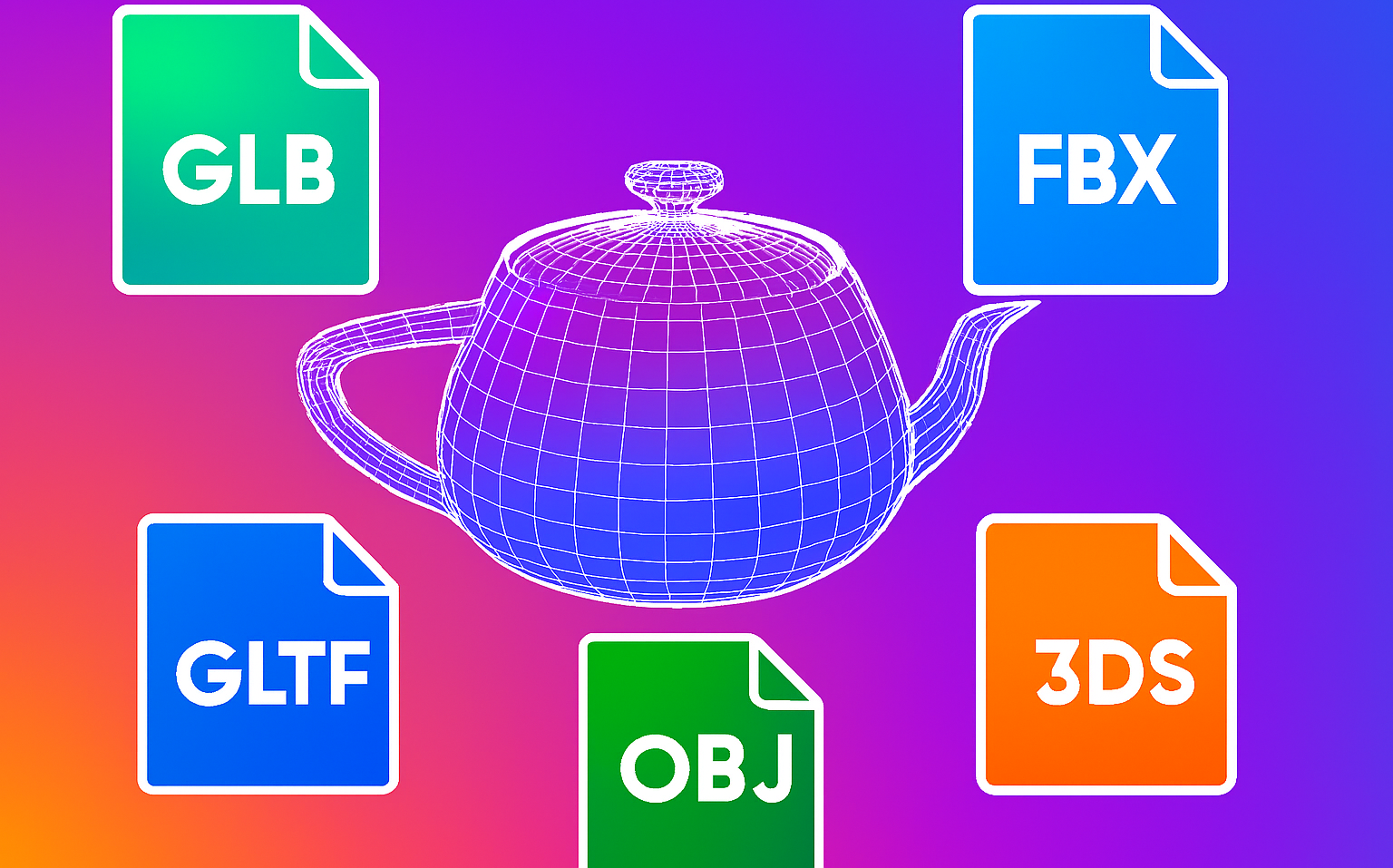Supported 3D File Format Overview

Supported 3D File Format Overview
3D File Format Overview
🌐 glTF (GL Transmission Format)
Best For: Real-time rendering & web
- JSON-based format with external binary and texture files
- Supports geometry, PBR materials, animation, cameras, lights
- Efficient, extensible, and widely adopted
- Open standard by Khronos Group
📦 GLB (Binary glTF)
Best For: Mobile/web delivery
- Binary version of glTF in a single compact file
- Contains JSON, binary buffers, and textures
- Fast loading and ideal for web/mobile apps
- Open standard by Khronos Group
🎥 FBX (Filmbox)
Best For: Complex animation pipelines
- Proprietary format by Autodesk
- Supports geometry, animation, rigging, cameras, lights
- Widely used in game engines and film production
- Requires Autodesk SDK for full access
🔄 DAE (COLLADA)
Best For: Collaborative asset exchange
- XML-based format maintained by Khronos Group
- Supports geometry, animation, physics, cameras, lights
- ISO-certified open standard
- Extensible but can be inefficient due to XML verbosity
🧱 OBJ (Wavefront Object)
Best For: Simple geometry exchange
- Text-based format developed by Wavefront Technologies
- Supports polygonal geometry, texture coordinates, normals
- Materials defined via external .MTL files
- No animation or scene hierarchy
🧊 3DS (3D Studio Mesh)
Best For: Legacy game assets
- Binary format developed by Autodesk
- Supports mesh geometry, materials, basic animation
- Limited to triangular meshes and 65,536 vertices
- Outdated but still used in older pipelines
📊 Format Comparison Table
| Format | Best For | Animation | Web-Friendly | Precision Modeling | File Size | Open Standard |
|---|---|---|---|---|---|---|
| glTF | Real-time rendering | ✅ | ✅ | ⚠️ | ✅ | ✅ |
| GLB | Web/mobile delivery | ✅ | ✅ | ⚠️ | ✅ | ✅ |
| FBX | Animation pipelines | ✅ | ⚠️ | ⚠️ | ❌ | ❌ |
| DAE | Collaboration | ✅ | ⚠️ | ✅ | ❌ | ✅ |
| OBJ | Simple geometry | ❌ | ⚠️ | ✅ | ❌ | ✅ |
| 3DS | Legacy assets | ⚠️ | ❌ | ❌ | ⚠️ | ❌ |
